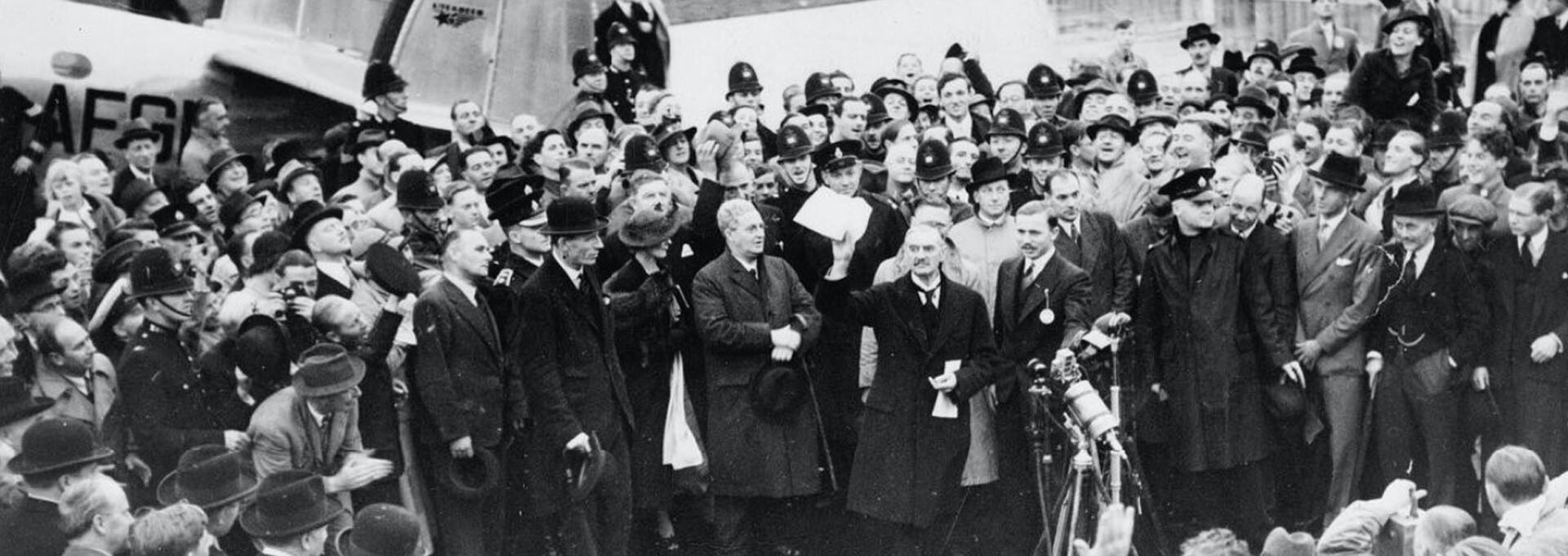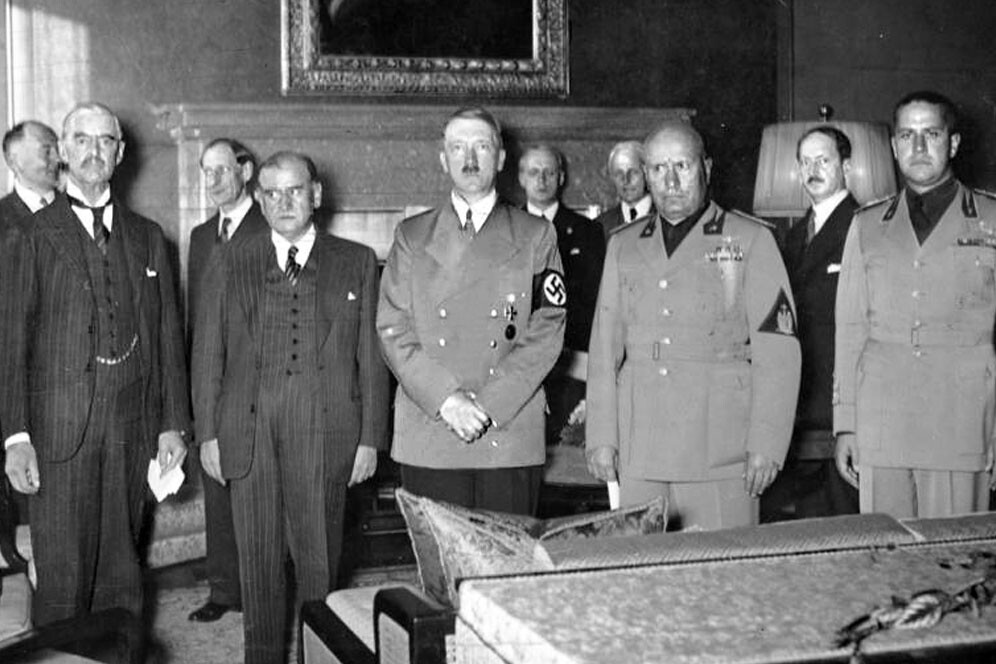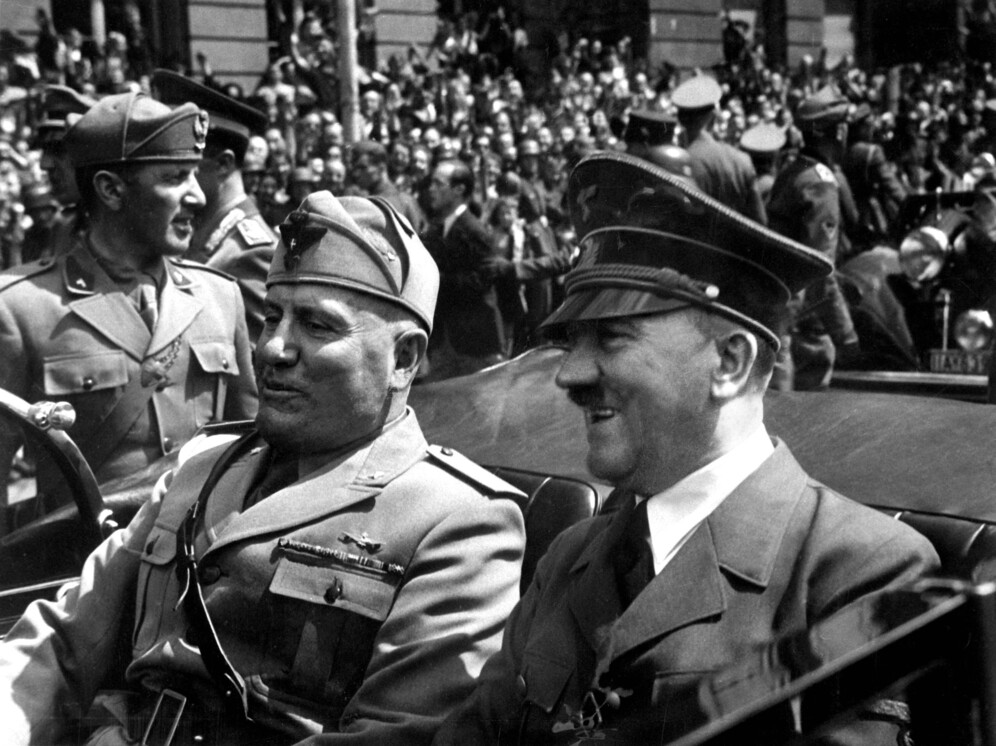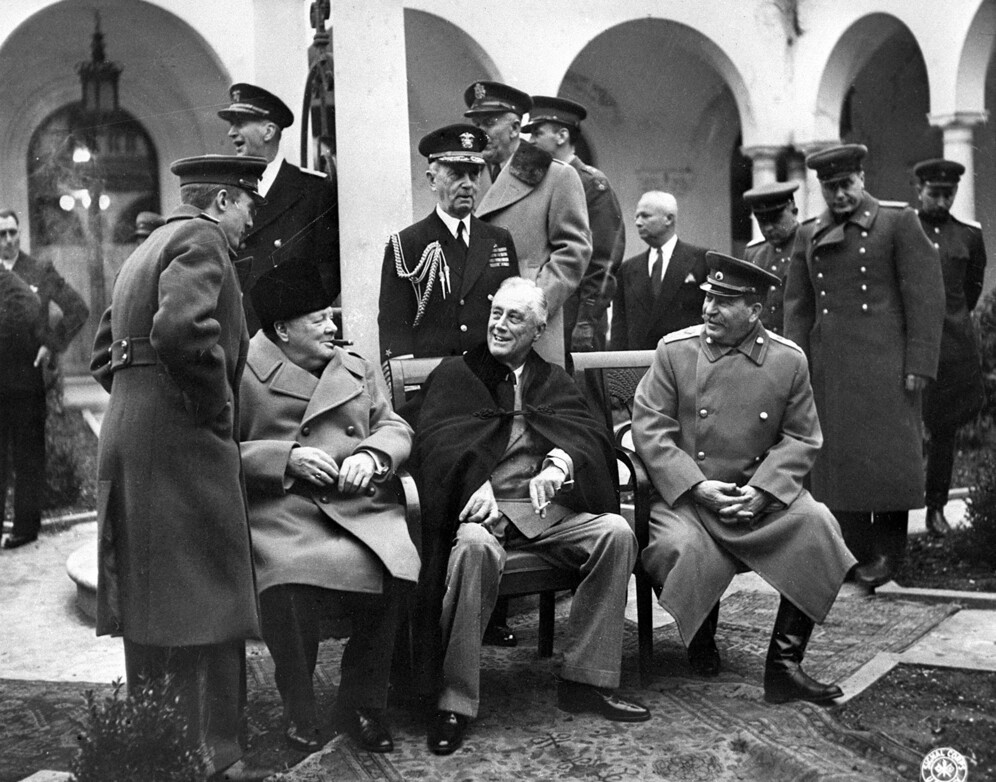The World on the Brink of WW II: The Appalling Facts Western Countries Try to Silence

Eighty-two years ago, on September 1, 1939, Nazi Germany attacked Poland, unleashing the bloodiest conflict in human history. To commemorate this tragic date, RTD sheds light on the events that preluded World War II.
“On May 8, 1945, America and Great Britain had victory over the Nazis!” the White House tweeted on May 8, 2020.
Today’s Western leaders and media have fallen into the habit of reducing the contribution of non-Western states to the victory of 1945. Moreover, as part of the unprecedented naming and shaming campaign against Russia, the USSR is increasingly put on the same scale as Nazi Germany and labelled as one of the instigating countries.
The notorious Molotov-Ribbentrop non-aggression pact, concluded by the USSR and Nazi Germany in August 1939, named after the two foreign ministers that signed it, seems to be the pet peeve of Russia’s critics. But does their criticism hold water?

The Munich Betrayal
In 2019 the European Parliament passed a resolution that accused the USSR of plotting with Hitler’s Germany and setting the stage for World War II. It’s hardly surprising that while eloquently describing the sinful nature of the Molotov-Ribbentrop pact, the document makes no mention of the ‘Munich Betrayal’ – another key event of the pre-war era.
The great European powers decided the country’s fate while its representative waited in a reception room.

Going back to history
Czechoslovakia gained independence due to the dissolution of the Austrian-Hungarian empire in the wake of World War I. By the late 1930s, it was one of the most developed states in Eastern Europe and one of the world’s largest military equipment exporters. The better half of the country’s industrial facilities were in the Sudetenland region, which bordered Germany and was inhabited chiefly by ethnic Germans. The area was one of the first objects of Hitler’s geopolitical aspirations in Europe.
Paris, London, and Milan weren’t the only ones to strike a bargain with Hitler. Other European countries, namely Poland and Hungary, welcomed the decision of the Munich conference and hurried to grab their piece of the pie. Unfortunately, whereas Poland occupied the Cieszyn Silesia, Hungary got part of Southern Slovakia. As a result, a large part of Czechoslovakia was practically carved up by its neighbours.

“Britain has been invited to join a quarrel in a faraway country, between people of whom we know nothing”, British Prime Minister Neville Chamberlain said in a radio address in 1938 on the prospect of Britain supporting Czechoslovakia in its strife with Hitler. But, as former US Secretary of State Henry Kissinger later said, “and these were the words of a leader of a country, that for centuries waged wars on the outskirts of India without batting an eye”.
Many died or lost their dearest and nearest in the war. Today, their legacy lives on in their personal letters from the front, now diligently preserved by descendants and historians alike. These letters, featuring heartbreaking stories of the horrors of battle and lives lost, but also speaking of love, patriotism, and the preservation of hope, give a human face to the cold historical facts of war. Watch our documentary Immortal Letters to have a glance at this face.
Appeasement or irresponsibility?
The ‘Munich Betrayal’ was the culmination of the notorious appeasement policy, inspired by Neville Chamberlain and supported by many European countries. The key idea of the policy was that if Europe succumbs to Hitler’s demands, he won’t start a new world war.
At first, the appeasement policy received massive public support. The still-fresh memories of the horrors of World War I were stoking strong anti-war sentiment in European societies. Though optimistic in its essence, the emotion clouded European leaders’ judgement and prevented them from foreseeing a catastrophe.
Less than a year after the Munich Agreement, German soldiers would step on Polish soil. Less than two years later, the first German bomb would land on London.
The might-have-beens of 1939
Even after the ‘Munich Betrayal’, the Soviet Union didn’t give up efforts to cement an anti-Nazi alliance with Great Britain and France. The summer of 1939 saw the trilateral negotiations in Moscow to create a united front to contain Nazi Germany and its allies.
However, Britain and France showed very little willingness to progress, and the talks stumbled. It later became clear that behind their unwillingness were the simultaneous secret negotiations on a possible anti-communist deal between Berlin and London. The details of the talks have not been declassified up to this day.
Though the trilateral talks in Moscow focused on military cooperation on land, Britain’s delegation was led by an admiral. Besides, the British and French officers took a ship instead of a plane, so the journey to Russia took them five days. A question arises: were they planning to strike any deal at all?
European leaders of the time were equally terrified by communism and Nazism and wouldn’t miss a chance to bring the two regimes up against each other.

“We all know Germany’s desire, as outlined by Hitler in his book, to move east. If he moved east, my heart would not have burst... If it came to a fight in Europe, then I would like it to be a fight between the Bolsheviks and the Nazis”, S. Baldwin, British Prime Minister in 1935 – 1937, once said.
In this context, Joseph Stalin had to make a choice: continue the futile talks with the British and French, or strike a deal with Nazi Germany that would delay Moscow’s entry into war and improve its strategic positions.
Since early August 1939, Hitler, impatient to start the war against Poland, had been urging Stalin to sign a non-aggression pact to avoid the possibility of waging war on two fronts. In contrast to the inert Brits and French, the German leader was ready to send his minister of foreign affairs to Moscow at once and give him the full powers to sign an effective non-aggression agreement and divide the spheres of influence in Eastern Europe.
The right choice seemed obvious. And it was made.
Sharpening one’s tools
As Russian President Vladimir Putin wrote in an article dedicated to the 75th anniversary of the ‘Great Victory’, “Stalin and his entourage, indeed, deserve many legitimate accusations. We remember the crimes committed by the regime against its own people and the horror of mass repressions. In other words, there are many things the Soviet leaders can be reproached for, but poor understanding of the nature of external threats is not one of them. They saw how attempts were made to leave the Soviet Union alone to deal with Germany and its allies. Bearing in mind this real threat, they sought to buy the precious time needed to strengthen the country’s defences”.
So the question was: how much time does each country have to sharpen its tools?
The non-aggression pact with Germany allowed the Soviet Union to avoid the threat of a two-front war – with Germany in Europe and with the militarist Japan in the Far East, where heavy fighting on the Khalkhin Gol River was already underway.
As for the secret protocol to the pact, it allowed USSR to push its border further to the west, improving its strategic positions in the future war. The Soviet army was deployed in Western Ukraine and Belorussia, as well as some former Polish lands.
Though today Joseph Stalin’s actions in 1939 fuel bitter criticism, at the time, Western leaders agreed the Soviet-German pact was a forced necessity.
“Russia has pursued a cold policy of self-interest… But that the Russian armies should stand on this line [the new Western border is meant] was clearly necessary for the safety of Russia against the Nazi menace”, Winston Churchill, then Britain’s First Lord of the Admiralty, said about the Molotov-Ribbentrop pact.

A prominent British politician and ex-prime minister Lloyd George echoed Churchill’s words, “The Russian armies occupied the territories that are not Polish and that were forcibly seized by Poland after the First World War... It would be an act of criminal insanity to put the Russian advancement on a par with the German one.”
A (real) winner?
While USSR was pulling itself up, Great Britain and France led the so-called “phoney war”. As Poland’s allies, both London and Paris declared war against Berlin but didn’t engage in any real military action for months to come.
Later, during the Nuremberg trials, German military leaders explained their quick success in Poland., “… we did not suffer defeat as early as 1939 only because about 110 French and British divisions stationed in the west against 23 German divisions during our war with Poland remained absolutely idle.”
Nonetheless, the great war was gaining momentum. The war that for six years ravaged virtually all continents, claiming the lives of more than 70 million people. The war pushed the peoples of the United Nations to put aside sharp historical and ideological differences and unite their efforts in the great fight between freedom and the deadly Nazi ideology.
USSR’s moment of peace ended on June 22, 1941, when Nazi Germany broke the Molotov-Ribbentrop pact and attacked it before declaring war. The war, in which the USSR would bear the main burden of anti-Nazi resistance.
Soviet troops played the key role in liberating many European countries, including Romania, Bulgaria, Poland, Hungary, and Czechoslovakia. However, nowadays this role is censored in the West. Today’s generation is widely under the impression it was the US that won World War II, as that’s what their textbooks generally tell them.
For a closer look at the battle over World War II history, watch Remembrance on RTD Documentaries.
During the World War, the Soviet Union lost every seventh citizen. Great Britain lost one in 127 citizens and the United States – one in 320 citizens. The Allied Commission on Reparations concluded in 1945 that “on the whole, the USSR accounted for about 75 percent of all military efforts undertaken by the anti-Hitler coalition.”
In his message to Joseph Stalin on September 27, 1944, Winston Churchill wrote that “that it is the Russian army that tore the guts out of the German military machine…”.
So, what’s made the American and British leaders change their minds and try to rewrite history?
Tune in for the premiere of our new documentary Fascism: A History to find out!